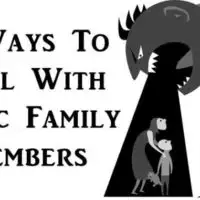Spending time alone is complicated. Some love it, while others hate it. Solitary time is often debated as an introvert vs. extrovert battle, an existential crisis loaded with opinions. Connotations of a lonely hermit living in the woods or a moody loner don’t shed the most favorable light on being alone, either. The truth is that alone time is actually good for you, and scientific studies are proving the point.
We humans are more connected now than we have been at any other time in history. Our pocket computers can connect us instantly with the world, allowing us to communicate with family, friends, or strangers thousands of miles away. While this connectivity can ease our loneliness, the truth is that more of us live alone than ever before. In 1960, 6.9 million Americans lived in a single-person household; in 2019, 36.48 million of us were flying solo. How can we make the best of time with ourselves and avoid feeling lonely?
Whether you live alone or not, carving out some “me time” has some surprising benefits.
1. You’ll have just as much fun alone.
When deciding whether to do an activity alone–like going to see a movie or play a round of mini-golf–we often perceive we won’t have a good time. A scientific study by a University of Maryland business professor, Rebecca Ratner, showed it’s all in our heads. It’s not that you won’t enjoy yourself, it’s that you think others will perceive you as lonely. The reality is that you’ll have just as much fun solo as you would in a group, provided you allow yourself to enjoy the activity.
2. Your brain will have a chance to recharge.
Our brains are constantly bombarded by stimuli. Like any other part of your body, the brain needs time to rest, replenish, and recharge. According to Sherrie Bourg Carter, Psy.D., “being by yourself with no distractions gives you the chance to clear your mind, focus, and think more clearly.”
3. You can pursue your own hobbies and interests freely.
When you’re part of a group, you naturally take the desires of everyone into account when planning an activity. Alone time allows you to narrow in and focus on what you want to do, allowing you to deeply engage in your creative endeavors.
4. You’ll work harder.
According to the concept of “social loafing,” people tend to work harder alone rather than in a group. This is because there’s no one else to rely on but yourself; you’re the only person that can do the work. Working alone can thus make you more focused and productive. (4)
5. If you’re an introvert, being alone will make you happier.
While alone time is good for all personality types, introverts especially need solitary space to be happy. Since social exchanges can easily tire them out, spending time by themselves with their own thoughts is necessary for their wellbeing.
6. You’ll increase your personal growth.
Being by yourself allows you to think undistractedly. This is the perfect opportunity to turn inwards, reflecting on areas of your life that you’d like to improve. Quiet time will help you navigate the inner workings of your mind with no one to interrupt your thoughts.
7. Being alone can ease depression, especially in teens.
While being lonely isn’t healthy for your mental wellbeing, being alone can be. Adolescents especially need time alone, according to a 1997 study by emotional development expert Reed W. Larson. The study showed that adolescents “who spent an intermediate amount of their time alone were better adjusted than those who spent little or a great deal of time alone.”
8. You’ll enjoy your relationships more and forge new ones.
If absence makes the heart grow fonder, alone time can enrich your relationships by giving you a chance to miss your loved ones–even if only for a few hours. You may also find that being alone during activities provides opportunities to meet new people, as you’re not distracted by anyone in your present company.
9. You’ll feel more self-assured.
Cultivating the ability to be alone can increase your confidence. Removing the fear of “being alone,” and then enjoying your experience, helps you see that solitary activities are actually enjoyable. This will decrease anxiety and sadness during times you’re by yourself.
Whether you find yourself alone by choice or by circumstance, take the time to savor the moment. You may realize that you enjoy it more than you thought you would.



